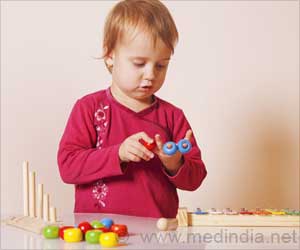Autism risk can be accurately predicted before birth by detecting any de novo mutations in the father’s sperms. The presence of these mutations significantly increases the risk of autism in future children.
- Risk of autism can now be predicted by analyzing the sperms of prospective fathers
- Mutations present in the sperms increase the risk of autism in future children
- This discovery could lead to the development of a genetic test that will play an instrumental role in genetic counseling
Read More..
Study Team
The study was jointly led by Dr. Jonathan Sebat, PhD, and Dr. Joseph G. Gleeson, MD. Dr. Sebat is Chief of the Beyster Center for Molecular Genomics of Neuropsychiatric Diseases and Professor of Psychiatry and Cellular and Molecular Medicine at the UCSD School of Medicine, La Jolla, California, USA. Dr. Gleeson is a Professor of Neuroscience and Pediatrics at the UCSD School of Medicine, La Jolla, California. He also holds joint appointments as Clinical Investigator at Rady Children’s Institute for Genomic Medicine, San Diego, California and Howard Hughes Medical Institute, Chevy Chase, Maryland, USA.The first author of the paper was Dr. Martin W. Breuss, PhD, who is an Assistant Project Scientist in Gleeson’s lab.
Study Background
The present study is based on the findings of recent studies that have shown that disease-causing harmful de novo mutations occur in at least 10-30 percent of autism cases. The number of these mutations increases with the increasing age of the father at the time of conception. These de novo mutations usually occur spontaneously in the parents’ sperms or egg before fertilization, as a result of which the mutations spread to every cell in the baby’s body as the fertilized egg undergoes division. Importantly, the father’s sperms have increasingly been suspected to harbor the majority of these de novo mutations, with the chance of their recurrence within the same family, estimated to be around 1-3 percent.“However, such estimates are not based on actual knowledge of the risk in an individual family, but instead are based on frequencies in the general population,” says Gleeson. “When a disease-causing mutation occurs for the first time in a family, the probability that it could happen again in future offspring is not known. Thus, families must make a decision with a great deal of uncertainty.”
Objective of the Study
It is known that of the approximately 1 in 59 children afflicted by autism, a substantial proportion is caused by de novo DNA (deoxyribonucleic acid) mutations. However, it is not known when and where these mutations occur. Hence, the major objective of the study was to find whether mutations occurring in the father’s sperms could result in recurrence of the same mutations in their children.Salient Features of the Study
- Sperms of 8 fathers of children with autism were analyzed
- Presence of genetic mosaicism was studied using deep whole-genome sequencing
- Genetic mutations in the offspring matched only those present in the father’s sperms
- 15 percent of the father’s sperms contained disease-causing mutations
Future Prospects of the Study
The study findings could lead to the development of a clinical test that will detect any de novo mutations in the father’s sperms, which will help to predict the risk of their occurrence in future offspring. This potential genetic test could play an instrumental role in genetic counseling.Expert Comments
“While medical textbooks teach us that every cell in the body has an identical copy of DNA, this is fundamentally not correct. Mutations occur every time a cell divides, so no two cells in the body are genetically identical,” says Breuss.He adds: “Mosaicism can cause cancer or can be silent in the body. If a mutation occurs early in development, then it will be shared by many cells within the body. But if a mutation happens just in sperm, then it can show up in a future child but not cause any disease in the father.”
Funding Source
The study was funded by the National Institutes of Health (NIH), the Simons Foundation Autism Research Initiative (SFARI), the European Molecular Biology Organization (EMBO), the European Commission, and the Austrian Science Fund.Reference:
- Autism Risk in Offspring can be Assessed through Quantification of Male Sperm Mosaicism - (https://www.nature.com/articles/s41591-019-0711-0)
Source-Medindia
















